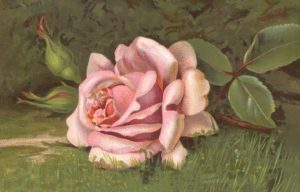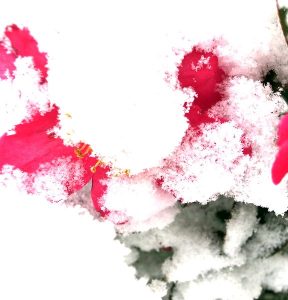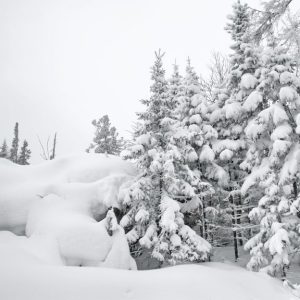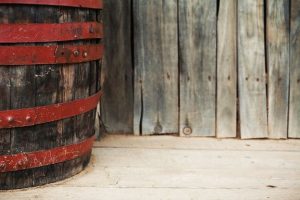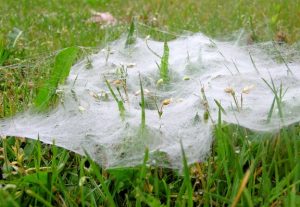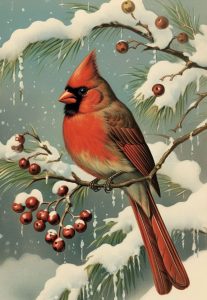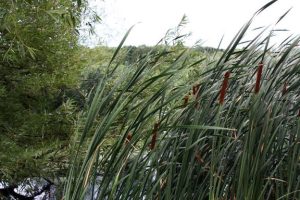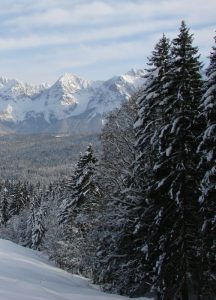All parts of this story are consolidated on one page here.
Maybe she had misheard the shocking accusation of murder, Ina thought. Surely, the Wild Forest’s witches could not have killed Nellie’s sister. They lived so peacefully in their secluded compound, striving for harmony with nature, that Ina couldn’t imagine them doing violence to anyone.
“I wasn’t here six years ago,” Ina replied, choosing her words carefully, “and I know nothing about what happened to your sister. Nobody ever spoke of her to me.”
“They killed her, I said!” Nellie’s voice rose in agitation as she waved her hands wildly. The knuckles of her right hand bumped the vase, which skittered across the table and fell off the edge before Nellie could catch it. The pink rose flew out, landing among thin grass and weeds in the shadow of the porch.
“Oh!” Clenching her hands again, Nellie sounded far more upset than simply dropping a vase—which didn’t appear to have taken any damage—might ordinarily have warranted. She visibly took several deep calming breaths, and then a sip of tea, before saying more.
“Early in the morning, on that Midsummer’s Eve, the air hung hot and still, with clouds gathering on the horizon—much as it was last year, when you arrived. Hetty was not yet eighteen, and she had come to stay here with me while John went into the city. I welcomed her help, as Mabel was still very young and was recovering from a fever.
“A girl wandered into the yard while Hetty and I were washing the breakfast dishes. She couldn’t tell us her name or where she was from, so we knew the witches had summoned her. Trying to keep her safe, we pretended that we knew her people in a nearby village and promised we’d take her there bright and early tomorrow, after John returned with the ox cart. We hoped that if she stayed here all night, she’d be free of the spell by daybreak.”
Nellie blinked twice and then abruptly got up from the table, turning her face away and rubbing one hand across her eyes as she picked up the fallen vase with the other hand.
“But we couldn’t stop our visitor from leaving.” Nellie settled back into her chair, restoring the now-empty vase to the table. “Late in the afternoon, a strong thunderstorm blew in, and we thought she’d have no choice but to stay the night. Instead, she lifted her head suddenly, like a dog hearing a distant whistle. She was out the door and hurrying toward the forest through the pelting rain at dusk before we realized what was happening. Hetty followed at once, while I stayed here with Mabel. Soon afterward, the rain stopped, but they did not return. The next morning, I found Hetty’s body washed up on the riverbank.”

